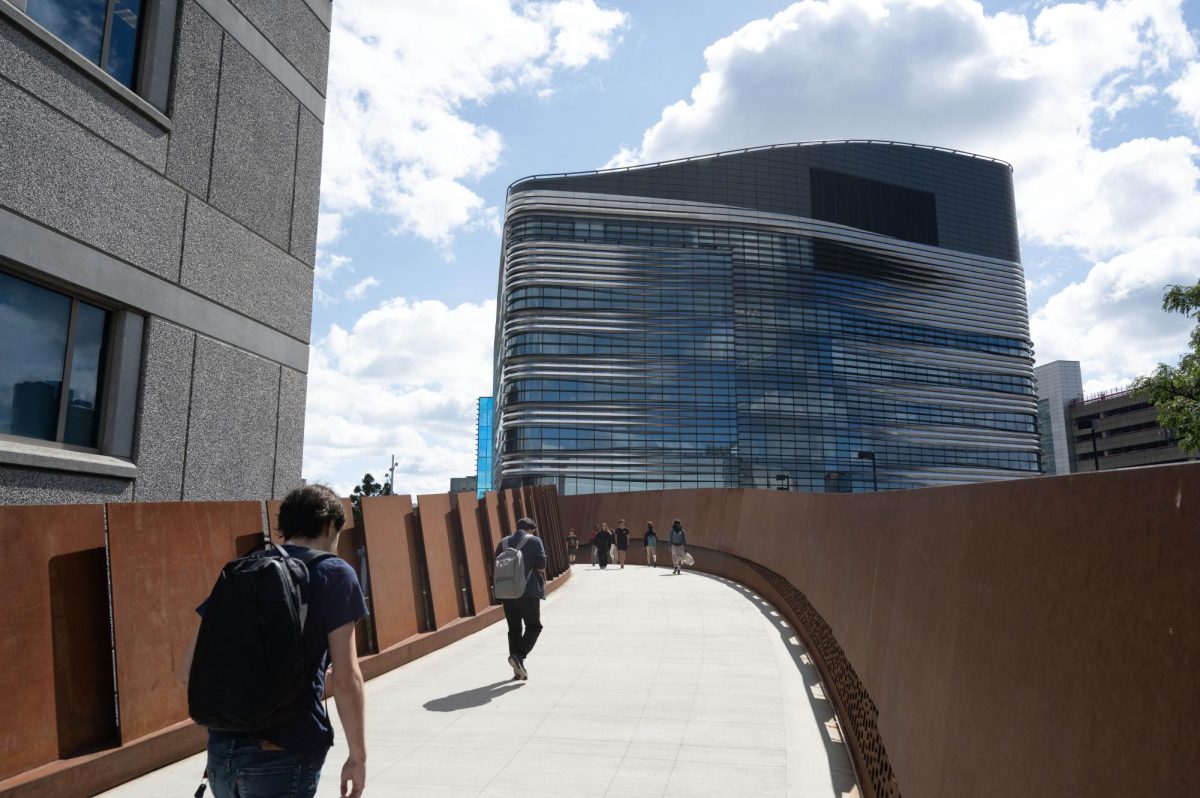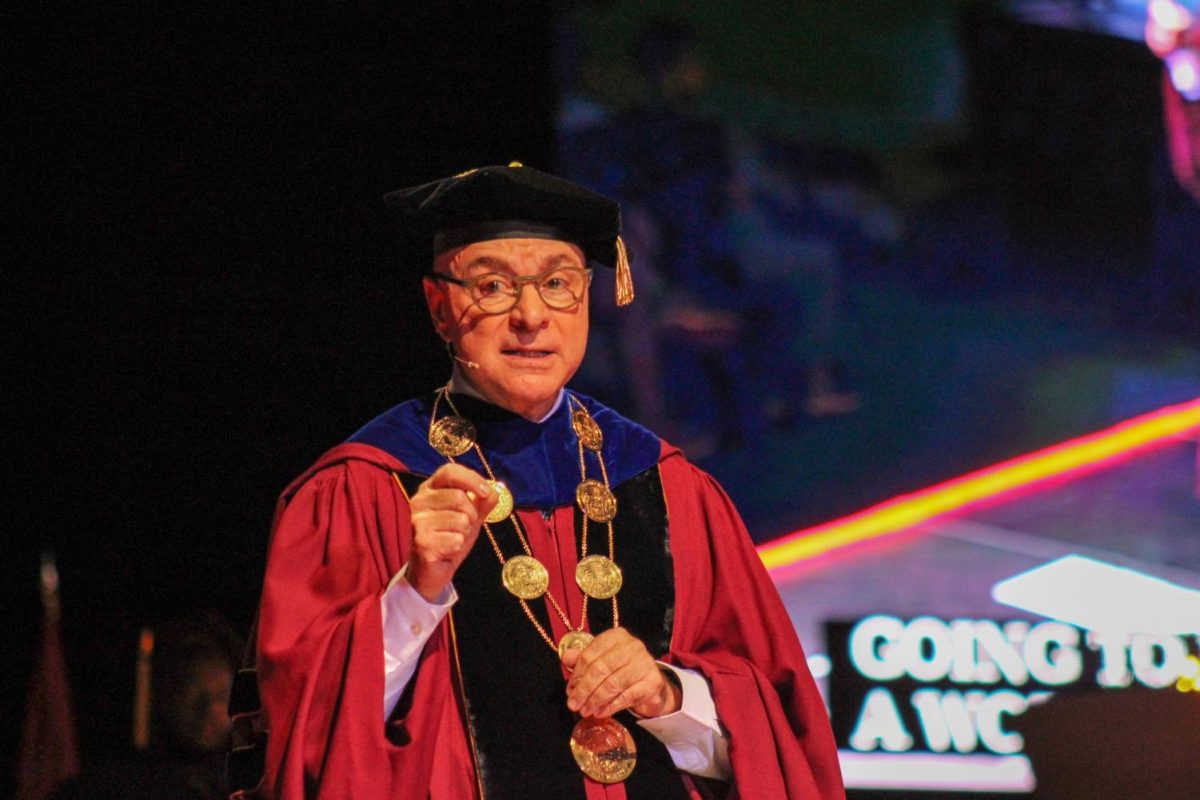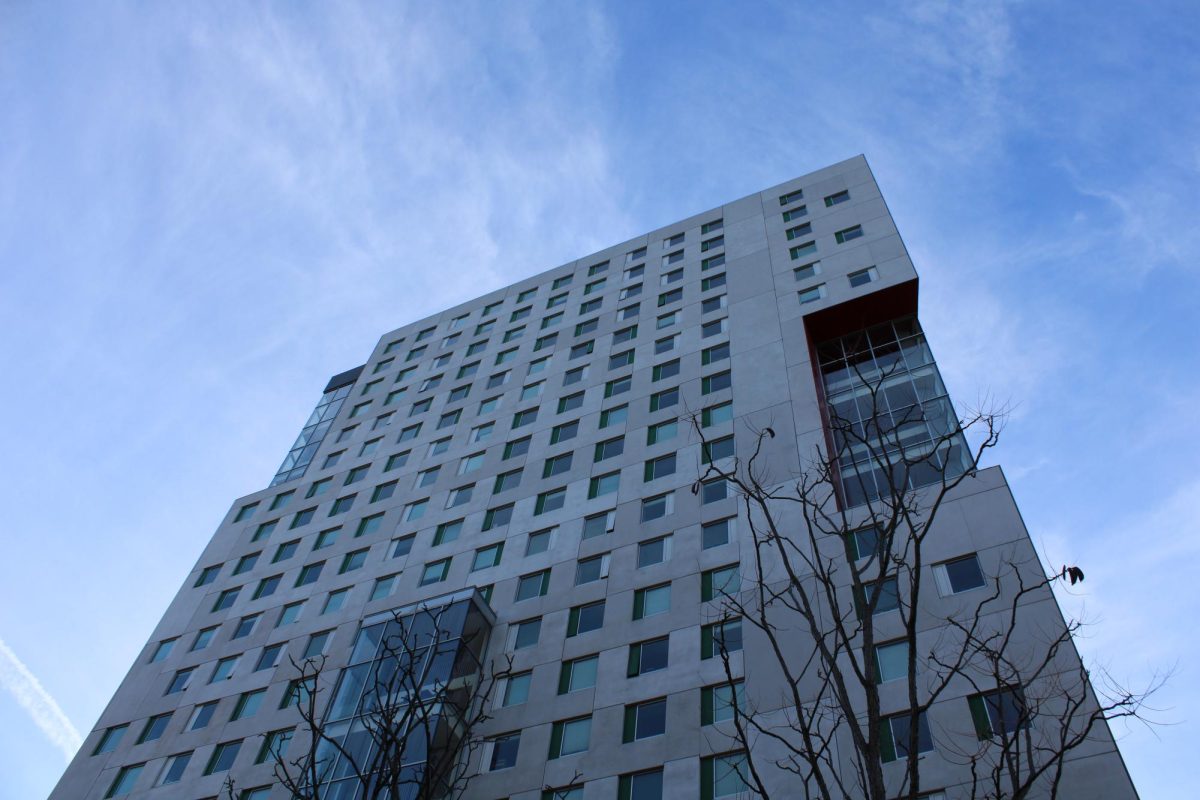By Glenn Yoder
Geoffrey Andrews is a busy man. Year-round he travels between 16 schools in New England, meeting individually with 265 students who he not only knows on a first name basis, but whose academic records he is so familiar with, he can cite their major and ask them questions about specific classes — without looking in his notebook.
As the executive director of the Travelli and Ayling Scholarships, two separate foundations which both provide compensation to students, it is his duty to know and maintain relationships with the students benefiting from the program.
“I go to each college once per year, twice at Northeastern because of co-op, and just talk with the students,” Andrews said. “I take some notes and make a little profile so I just get to know them personally. A lot of scholarships are restrictive in the type of person they want, and we don’t have that kind of limit. We just look for people with character and potential — people who are mature enough to contribute something to this school and get something out of their time here.”
Since each of these students has significant need as calculated by the Financial Aid Office, they receive significant scholarship aid from the foundations, the university and other sources of grant funds depending upon their need, according to Peter Franks, the chief executive officer of the World Association for Cooperative Education.
The fund does not cover freshman year because the board uses the students’ academic records, teacher recommendations and performances in a campus setting to make their decision.
Franks oversees the Travelli and Ayling selection process at North-
eastern, and said that the board bases their decision on three basic criteria: substantial financial need, strong academic performance and whether the student exemplifies leadership skills through extra-curricular and school or community involvement.
“The philosophies of the foundation are if a student has essentially the pressures of finances taken off their shoulders, if the burden for the funding is relieved, then the students will have the time to concentrate on their own personal and professional development,” Franks said. “And I can tell you, having done this at Northeastern since the late ’70s, it works. When I look at the alumni, if you look at who these people are and what they achieve in their lives — some of it is financial success, some of it is professional success, some of it is personal success — but these people have been very successful in their lives, and they’re terrific people. And they were always terrific students.”
The programs have churned out many successful graduates in diverse fields. Andrews said, however, the achievements of alumni are not points he stresses.
“I don’t really remember those stories because I don’t tell them,” Andrews said. “We’re not looking for ‘stars’ just to impress people. We make certain people are getting what they should as a result of their own abilities.”
Students like middler journalism and history major Shannon Blakely, who have benefited from the program, said that they appreciate all that it has done for them.
“You push yourself because of all these people supporting you and they are doing something so amazing for you,” Blakely said. “It’s making it possible for me to go to this school. I can’t describe how much that means.”
Kim Campbell, a middler who is triple majoring in French, music literature and performance and music industry while maintaining duties as the president of three student groups, said she works phones for the school just to pay back a small amount of what she has been given.
“People are giving so much for me to be here, the least I can do is make phone calls,” Campbell said. “People are going to give you everything they can and the alumni are friendly and want to meet you and help. I am eternally grateful.”
Many alumni still remain active in the program. Some help with current students to help pay back the foundations, others assist in finding co-op jobs for students and one even set up his own scholarship fund.
The Tonina Family Schol-
arship takes in one student annually and is currently sponsoring its first student. The money comes from a combination of the foundations and the university, who invest it in order to see it grow over the years until it is bestowed upon students.
“One of the other parts of the philosophy of the foundations is that they want their money to make a significant difference in a young person’s life,” Franks said. “They don’t want to give out a lot of small scholarships, they want to give out scholarships that are a substantial size and over a period of typically four years, so that by the time that they graduate, it’s the hope of the foundations and the university that this money will really have made a significant difference.”
Unlike other programs, there is no grade point average students must maintain in order to renew the scholarships. This is simply a testament, however, to the great trust the foundations place in the students they sponsor.
“This program isn’t run by the numbers,” Andrews said. “We look at these students as people and look for something that makes them stand out a bit. We rely on the colleges a lot to use their judgment, but of course we don’t simply approve. We do screenings and just look at each individual to make sure we’re selecting the best people we possibly can.”








